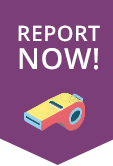Sexual exploitation, abuse and harassment: prevention is better than cure
12.11.2021
Share this story
An OIG webinar on October 26th 2021 highlighted the potentially devastating impact of sexual exploitation, abuse, and harassment (SEAH), and provided practical advice on preventing and responding to wrongdoing, including reporting and detection strategies and an overview of the investigative and victim/survivor support process.
Global Fund experts joined grant implementers from Ethiopia, Kenya, Mozambique, South Africa, Tanzania, Uganda, Zambia, Zanzibar and Zimbabwe to explore how SEAH threatens Global Fund programs and beneficiaries.
Katie Hodson, OIG Head of Investigations, explained the Global Fund’s focus and approach to tackling SEAH, emphasizing that the organization’s require grant implementers to guard against such abuses.
In certain contexts, “the risk is extremely high, and we all have a responsibility to act to prevent exploitation and abuse,” said Abigail Averbach, who led a recent OIG investigation into SEAH in Ghana. In addition, “grant implementers must report to the Global Fund as soon as they suspect wrongdoing, must make reporting channels available to all employees, and are expected to provide support to victims and survivors.”
The session used case studies to discuss how implementers can identify SEAH and mitigate its impact, and how to ensure vulnerable populations ca report SEAH safely.
The OIG will be conducting further SEAH awareness-raising sessions in coming months and has produced a short video explaining how SEAH threatens Global Fund programs.
If you, or anyone you know, have experienced sexual exploitation, abuse or harassment in Global Fund programs, you can report safely and securely and confidentially to the OIG – details here.












